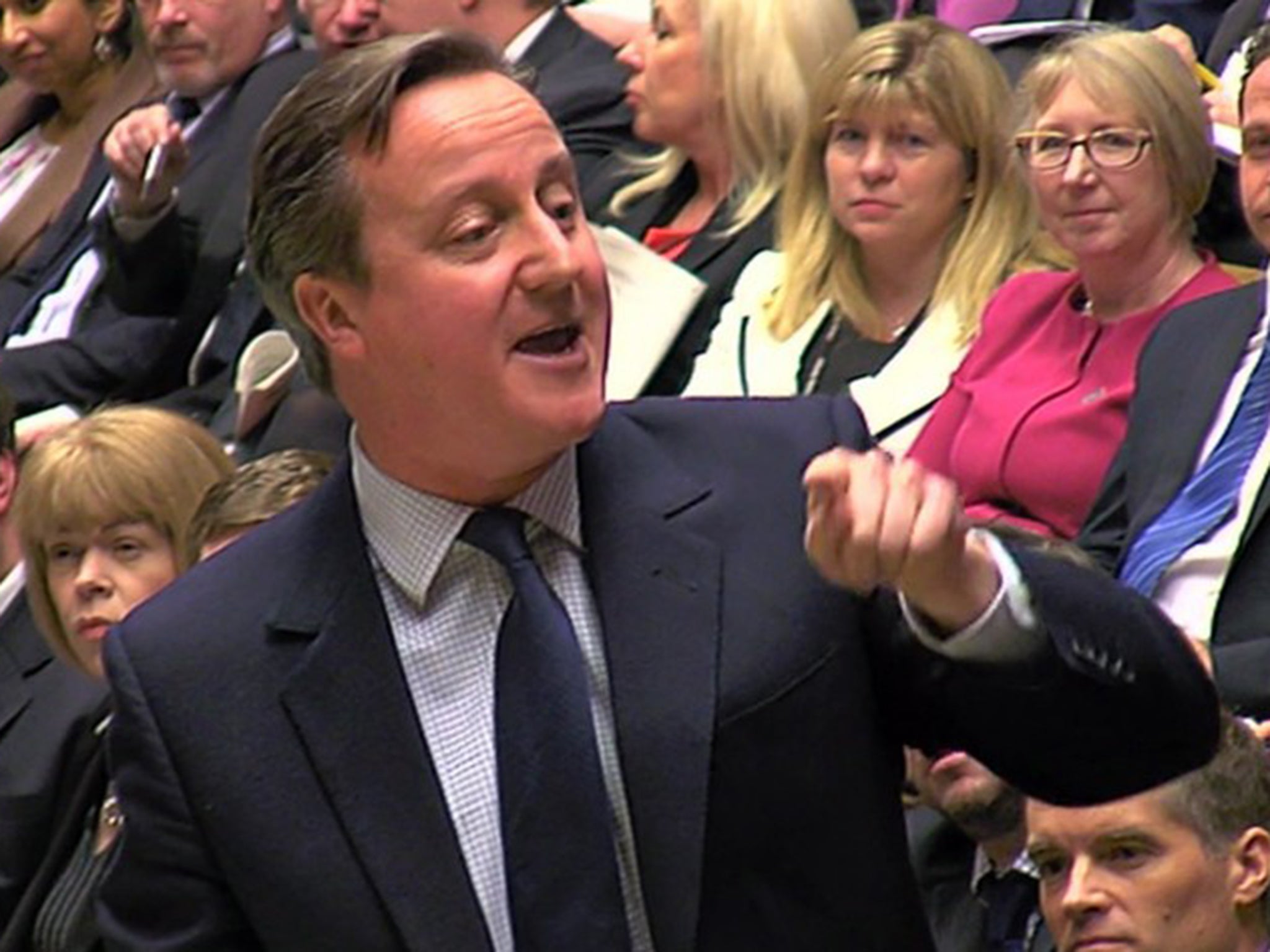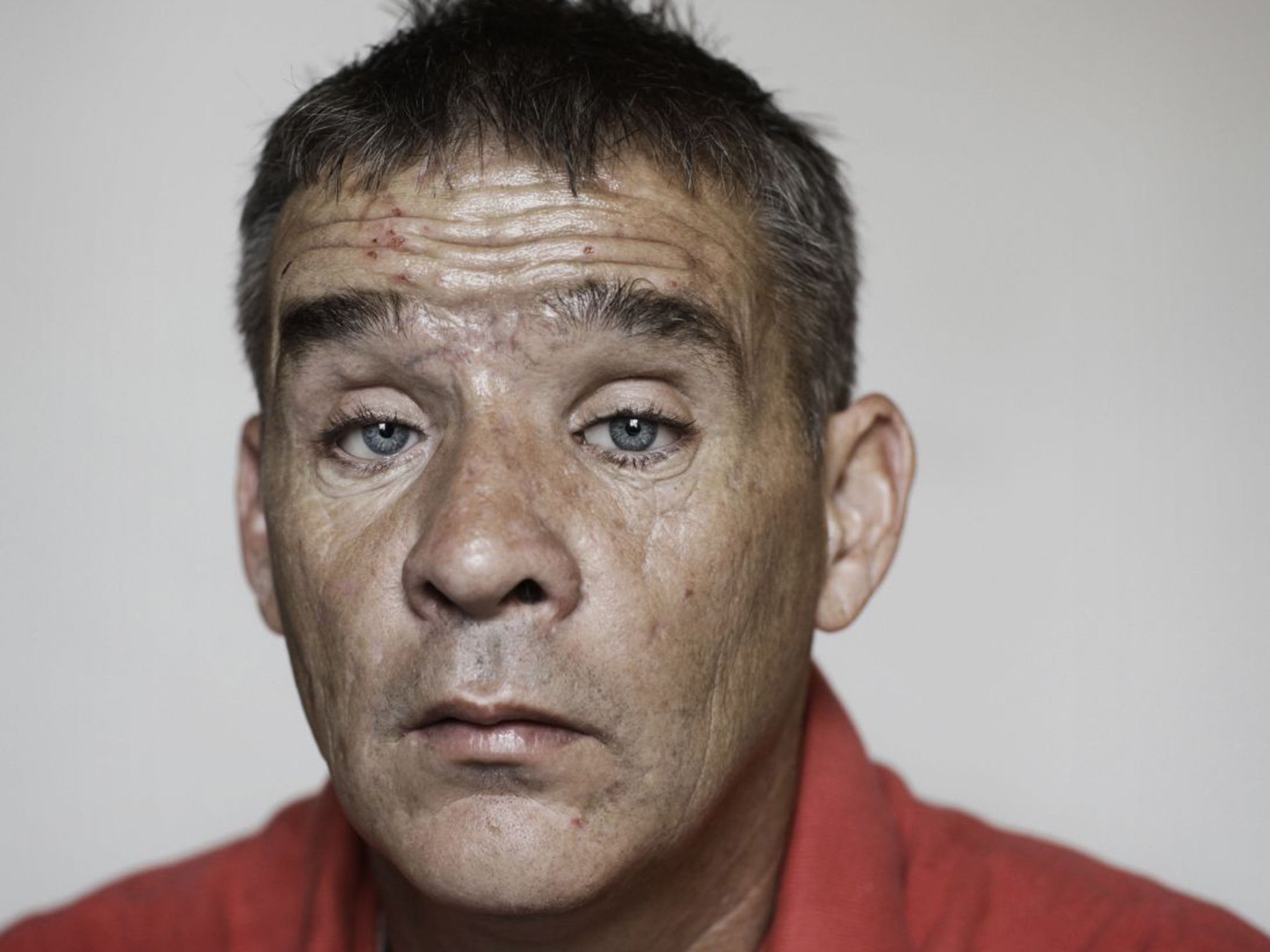Why is David Cameron trying to crush Labour as an effective opposition?
With a double attack on funding, through changes to trade union rules and cuts to statutory money for opposition parties, Cameron and George Osborne are threatening Labour’s very existence


If Jeremy Corbyn is still Labour leader in 2020, that year’s election battleground will be clear. There will be no question of voters complaining they can’t tell the difference between Corbyn and whoever succeeds David Cameron.
Whether the next Conservative leader is a One Nation Tory or a populist Eurosceptic, the 2020 battle will be left vs right, Corbynomics and the People’s Public Services vs lower taxes, smaller state Conservatism. It should be a straightforward fight, and, considering the non-radical, centre-ground leanings of the British public, one the Tories should win.
So why, then, is the Prime Minister trying to crush Labour as an effective opposition altogether? With a double attack on funding, through changes to trade union rules and cuts to statutory money for opposition parties, Cameron and George Osborne are threatening Labour’s very existence, at the same time as doing nothing to cap donations from wealthy individuals who buy access to Cabinet ministers.
The Trade Union Bill begins its committee stage in the House of Lords this week, and is expected to be condemned from all sides. The Bill contains clauses to force union members to opt in, rather than opt out, of paying a political levy, which could cost Labour £6m in affiliated donations every year. The Bill will also end “check off” for unions, meaning the practice where members’ subscriptions can be automatically deducted from their pay – in the same way workers pay for childcare vouchers or occupational bike schemes – will be axed.
In addition to the assault on trade union funding, the Chancellor announced in his Autumn Statement that he was cutting Short Money, which helps opposition parties carry out their parliamentary duties and has been in place for 40 years, by a staggering 19 per cent – which will leave Labour £1m a year worse off. Short Money is an essential part of democracy: ministers have the well-funded, well-oiled civil service to support them; in order to challenge, scrutinise and oppose the government, opposition parties need money for research and staff. To undermine this undermines our parliamentary democracy.
As the senior Tory MP David Davis told The Independent last week, the planned attacks on Labour funding are “mean-spirited” and “borderline immoral”. Davis is one of a number of Conservative MPs and peers who are alarmed at these moves to weaken Labour as effective opposition. They want to fight their opponents on a level playing field. Politics, in its rawest form, should be about winning an argument, a battle of ideas – not an underhand attempt to strip your opponents of their weaponry.
At a committee hearing on the impact of the Trade Union Bill, Labour’s general secretary, Iain McNicol, quoted Churchill telling the Commons in 1948: “It has become a well-established custom that matters affecting the interests of rival parties should not be settled by the imposition of one side over another.” A Conservative leader who finds himself on the wrong side of a Churchill quote should perhaps think again.
What are Cameron and Osborne afraid of? That Corbyn’s Labour Party will defeat the Tories in May 2020 on a tide of 21st-century socialism? Do they not have the confidence in their own record in power without fixing the race before it’s started?
In 2020, voters should judge this Government on a decade of austerity. The one thing Cameron and Osborne should not cut in the name of austerity is democracy.
A cruel ruling
How much more agony will the family of PC David Rathband, who was left blind in a gunshot attack by Raoul Moat and later killed himself, be forced to cope with?
On 5 February, the police officer’s brother and sister lost a case against Northumbria Police for negligence after the judge ruled that the force could not have prevented Moat going on the rampage. Mr Justice Males said it was an “immensely sad case”. It seems incomprehensible, then, that the judge has ordered the Rathbands to pay legal costs of £100,000, payable within 21 days.

I am sure if the family set up a fighting fund to meet this, they would have public support. But the point is they should not have to be penalised in this way for taking on a public institution. This cruel ruling will also, surely, put off other ordinary families from bringing a case against companies or organisations for fear of being bankrupted if they lose.
Bridging the differences
After a week in which he faced the most humiliating front-page headlines of his decade as Tory leader, David Cameron must have been pathetically grateful to visit Poland and Denmark, two countries where he is unable to read what the newspapers are saying about his troubled EU negotiations.
On 5 February, when he was walked through the Danish parliament by Prime Minister Lars Løkke Rasmussen, his host reminded him he was in Borgen – the name of the building as well as the hit BBC 4 political drama. Cameron said he had seen series 1 but was a bigger fan of the other Nordic noir drama, The Bridge. It’s funny, because in 2013, when Scandinavian succour was not high on the British PM’s agenda, Cameron said this, when he was asked if he watched Borgen: “God no. It’s just whether Morgen Schmorgen is health minister or is education minister.”
It is just as well that Cameron opted for a more diplomatic tack on 5 February, because Rasmussen ended up backing his EU plan.
How are your Little Gems, Jem?
Last August, when Jeremy Corbyn was merely a frontrunner in the Labour leadership contest, the MP told me about his verdant and productive allotment and asked me about mine. We spent five minutes swapping notes on our plots at the start of an interview for this newspaper.
Corbyn offered me an invitation to his allotment in East Finchley, north London, but he hasn’t been in touch since to let me come and look at his brassicas. Is it because he no longer has time to tend to the plot now he’s leader?
I am happy to bring my digging fork if he needs help with the weeds.


Join our commenting forum
Join thought-provoking conversations, follow other Independent readers and see their replies